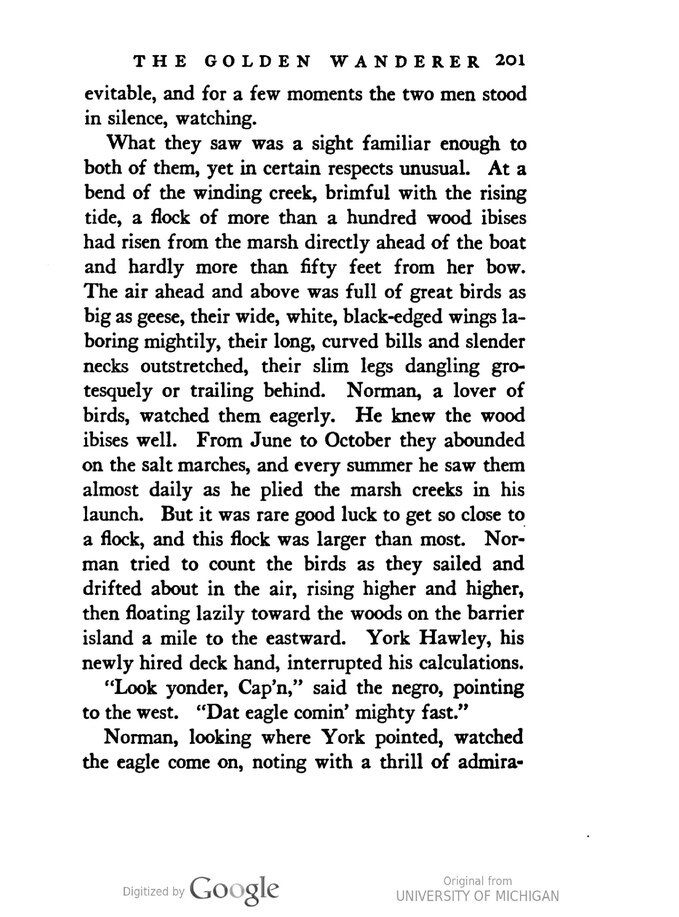evitable, and for a few moments the two men stood in silence, watching.
What they saw was a sight familiar enough to both of them, yet in certain respects unusual. At a bend of the winding creek, brimful with the rising tide, a flock of more than a hundred wood ibises had risen from the marsh directly ahead of the boat and hardly more than fifty feet from her bow. The air ahead and above was full of great birds as big as geese, their wide, white, black-edged wings laboring mightily, their long, curved bills and slender necks outstretched, their slim legs dangling grotesquely or trailing behind. Norman, a lover of birds, watched them eagerly. He knew the wood ibises well. From June to October they abounded on the salt marches, and every summer he saw them almost daily as he plied the marsh creeks in his launch. But it was rare good luck to get so close to a flock, and this flock was larger than most. Norman tried to count the birds as they sailed and drifted about in the air, rising higher and higher, then floating lazily toward the woods on the barrier island a mile to the eastward. York Hawley, his newly hired deck hand, interrupted his calculations.
"Look yonder, Cap'n," said the negro, pointing to the west. "Dat eagle comin' mighty fast."
Norman, looking where York pointed, watched the eagle come on, noting with a thrill of admira-
